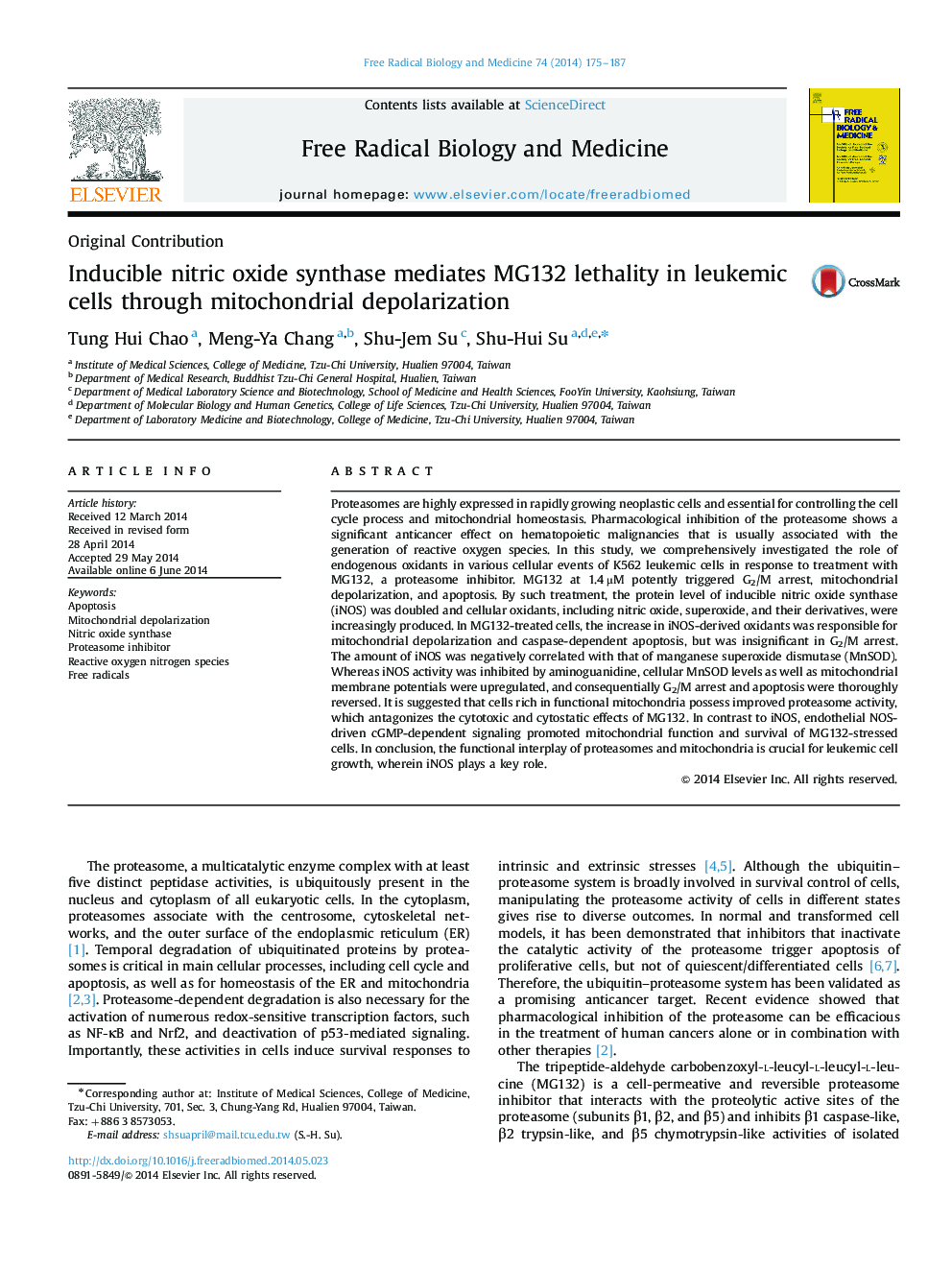| Article ID | Journal | Published Year | Pages | File Type |
|---|---|---|---|---|
| 1908303 | Free Radical Biology and Medicine | 2014 | 13 Pages |
•Production of iNOS-derived oxidants is responsible for MG132 cytotoxicity.•Production of RONS plays an insignificant role in MG132-mediated G2/M arrest.•Inhibition of iNOS upregulates MnSOD expression and mitochondrial function.•Functional mitochondria can improve proteasome activity against the effects of MG132.
Proteasomes are highly expressed in rapidly growing neoplastic cells and essential for controlling the cell cycle process and mitochondrial homeostasis. Pharmacological inhibition of the proteasome shows a significant anticancer effect on hematopoietic malignancies that is usually associated with the generation of reactive oxygen species. In this study, we comprehensively investigated the role of endogenous oxidants in various cellular events of K562 leukemic cells in response to treatment with MG132, a proteasome inhibitor. MG132 at 1.4 µM potently triggered G2/M arrest, mitochondrial depolarization, and apoptosis. By such treatment, the protein level of inducible nitric oxide synthase (iNOS) was doubled and cellular oxidants, including nitric oxide, superoxide, and their derivatives, were increasingly produced. In MG132-treated cells, the increase in iNOS-derived oxidants was responsible for mitochondrial depolarization and caspase-dependent apoptosis, but was insignificant in G2/M arrest. The amount of iNOS was negatively correlated with that of manganese superoxide dismutase (MnSOD). Whereas iNOS activity was inhibited by aminoguanidine, cellular MnSOD levels as well as mitochondrial membrane potentials were upregulated, and consequentially G2/M arrest and apoptosis were thoroughly reversed. It is suggested that cells rich in functional mitochondria possess improved proteasome activity, which antagonizes the cytotoxic and cytostatic effects of MG132. In contrast to iNOS, endothelial NOS-driven cGMP-dependent signaling promoted mitochondrial function and survival of MG132-stressed cells. In conclusion, the functional interplay of proteasomes and mitochondria is crucial for leukemic cell growth, wherein iNOS plays a key role.
Graphical abstractFigure optionsDownload full-size imageDownload high-quality image (192 K)Download as PowerPoint slide
